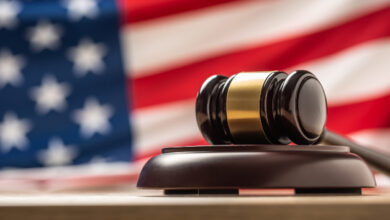Four big takeaways from Day 9 of Trump's hush money trial

(NEW YORK) — A Los Angeles-based attorney who represented both Stormy Daniels and Karen McDougal explained to jurors how he brokered a pair of deals to keep their alleged affairs with Donald Trump out of print, claiming that he interpreted the “catch-and-kill” schemes as a mechanism to protect Trump from political liabilities, during Tuesday’s proceedings in Trump’s criminal hush money trial.
The former president is accused of falsifying business records to hide the reimbursement of a hush money payment his then-attorney Michael Cohen made to Daniels in order to boost his electoral prospects in the 2016 presidential election. He has denied all wrongdoing.
Keith Davidson testified Tuesday that interest in Stormy Daniels’ claim “reached a crescendo” in late 2016 in the wake of the Access Hollywood tape on which Trump was heard bragging about grabbing women. Davidson also said it was his understanding that Trump would be the one to foot the bill for her silence — not Michael Cohen, who ultimately paid up.
Judge Juan Merchan began the day by holding Trump in criminal contempt and fining the former president $9,000 for repeatedly violating the case’s limited gag order. He set a 9:30 a.m. hearing for Thursday to hear arguments about four additional violations by Trump.
Here are the big takeaways from Day 9 of the trial:
Stormy Daniels’ deal was all about the election, lawyer claims
Keith Davidson testified that he grew increasingly frustrated with Michael Cohen in the weeks leading up to the 2016 presidential election, as the onetime Trump fixer repeatedly delayed paying his client, Stormy Daniels, after negotiating a deal for her silence.
“I thought he was trying to kick the can down the road until after the election,” Davidson said.
Davidson’s testimony cut to the core of the district attorney’s case — tethering Cohen’s action, or lack thereof, to Trump’s political ambitions.
“What do you expect me to do — my guy is in five f—— states today,” Davidson said Cohen told him at one point. “I am doing everything I can.”
Davidson said he believed that “Michael Cohen didn’t have the authority to actually spend money,” but he thought that Trump would ultimately fund the payment.
“Where did you believe the money to be coming from?” prosecutor Josh Steinglass asked.
“From Donald Trump or some kind of corporate affiliation thereof,” Davidson said.
Davidson recounts selling McDougal’s story to Enquirer
On June 7, 2016, Davidson sent a text message to Dylan Howard, an editor at the National Enquirer, saying, “I have a blockbuster Trump story.”
Howard responded less than a minute later.
“Talk 1st thing,” he replied. “I will get you more than ANYONE for it. You Know why…”
Jurors saw dozens of texts the two men subsequently exchanged during negotiations. According to Davidson, McDougal was “teetering between two different deals” at the time, but only the National Enquirer could grant her what she really wanted: to avoid actually having to tell her story.
McDougal wanted to “rejuvenate her career, to make money,” Davidson explained. But she also wanted “to avoid telling her story,” or become the “Scarlet Letter, the ‘other woman.'”
Davidson described how was ultimately able to arrange that deal for McDougal.
Trump held in criminal contempt, ordered to pay $9,000
Before Tuesday’s testimony, Judge Juan Merchan issued a ruling holding Trump in criminal contempt for repeatedly violating the case’s limited gag order by targeting potential witnesses in the case on social media and elsewhere.
Merchan ordered Trump to pay $1,000 each for nine violations and threatened to jail him if he continues to willfully violate court orders. Trump was also ordered to remove the posts in question — which he did during the lunch break — and to pay the fine by the close of business this Friday.
The judge said he was still considering additional contempt motions for subsequent alleged gag order violations.
Jury sees videos of Trump
Jurors were treated to their first glimpse during the trial of Donald Trump offering any substantial comments — but they were played on a video screen, not in person, and reflected comments he made in 2016 and 2017 about women who came forward with claims of extramarital affairs.
Prosecutors played videos from two campaign events in 2016 and a press conference he gave after becoming president-elect in 2017.
“I have no idea who these women are. I have no idea,” Trump said in one of the videos. “The stories are total fiction. They are 100% made up. They never happened. They never would happen.”
Copyright © 2024, ABC Audio. All rights reserved.





